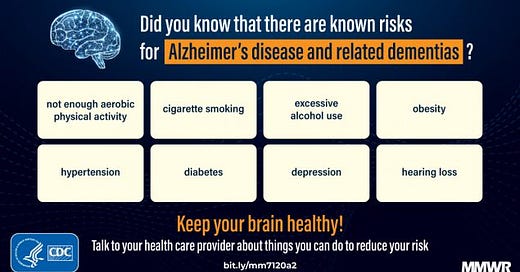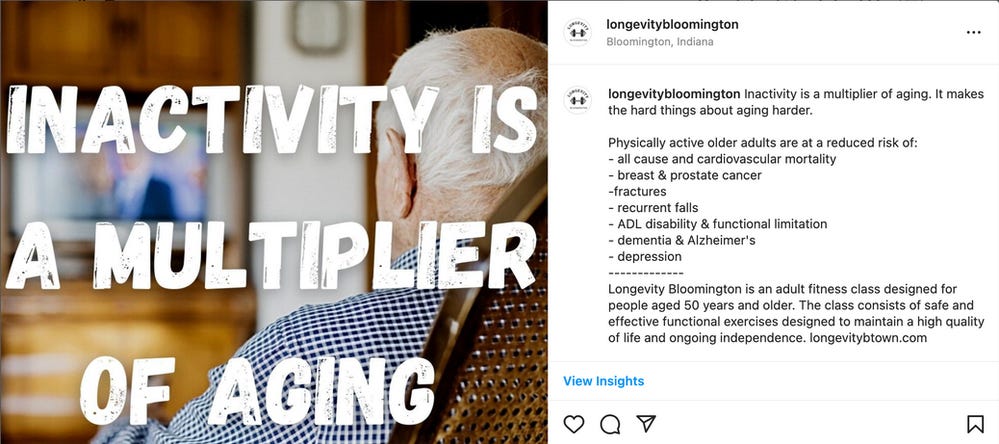Longevity Bloomington Newsletter #8- Weight Loss
Research Roundup: Weight Loss
How much weight do you need to lose to have a meaningful impact on your health?
Most people that are overweight understand they need to lose weight but losing weight can be difficult. Fortunately, you do not need to lose a significant amount of weight to begin seeing health benefits.
A 2018 study looked at the effects of 5%, 10% and 15%+ weight loss on improvements in various health conditions. What did they find?
The general theme of the paper is that health benefits can begin with as little as 2-5% of weight loss but with greater levels of weight loss there is even greater improvement. That means for a 150 pound individual, losing as little as 3-7 pounds can start having a positive impact on your health.
For example, an average weight loss of 6.7% reduced the likelihood of diabetes by 58% in the American Diabetes Prevention Program(Bray, 2002)! Additionally, in individuals with impaired glucose tolerance, for every kilogram (2.2 pounds) of weight lost there was a 16% reduction in risk for progression to diabetes.
A small amount of weight loss (3-10%) can have a significant impact on a host of health conditions:
reduced blood pressure
reduced cholesterol
decreased symptoms of sleep apnea
less knee pain
reduction of depressive symptoms
improved quality of life
less health care costs
improved mobility
reduced risk of heart disease
What is the best diet for weight loss?
Now that you know it doesn't take much weight loss to make a positive impact on your health, what diet is best? There is a lot of contradictory information out there about dieting. Some people swear by low-carb while others praise low-fat diets. Some camps want you to eat only meat while others think you should be a vegetarian. What does the research say?
A 2021 study, "Optimal Diet Strategies for Weight Loss" reviewed the current evidence of various diet strategies.
The results were clear: there is no “best diet” for weight loss. The single most important factor in determining whether or not a diet will result in weight loss is an energy deficit. You need to burn more calories than you take in to lose weight. Deficits of 500–750 calories per day have been used for weight loss and are recommended by many obesity societies and guidelines. What about the differences between low-fat and low-carb diets? The 2018 DIETFITS study found no significant differences in weight loss between the two.
It should be noted that adequate protein intake is extremely important in calorie restriction for preservation of muscle mass regardless of diet.
From the conclusion of the paper (paraphrase): "There is no single best strategy for weight management. Reducing daily calorie intake is the most important factor for weight loss. Low-calorie recipes, especially those for low-fat or low-carbohydrate diets, have been suggested as the first dietary strategy. Except for energy deficit, there seems to be no significant difference between macronutrient composition-based diets. However, as in the Mediterranean diet, increasing consumption of fruits and vegetables and intake of healthy fats (including monounsaturated as well as polyunsaturated fats) can be a healthy strategy for weight loss and maintenance. Additionally, increased protein intake can help with weight loss maintenance." So the best diet for weight loss is a diet that results in a caloric deficit that you can stick with over the long-term.
Here is a good infographic from the CDC regarding ways to reduce your risk of Alzheimer's disease and other forms of dementia.
Longevity Bloomington Social Media
Here are a few posts from our social media accounts this month.
https://video.wixstatic.com/video/5c793d_6a0893c3f2b84509900d607e4faeb874/720p/mp4/file.mp4
If you would like evidence based tips for successful aging delivered to your inbox each month, you can subscribe here: bit.ly/longevitybtown







